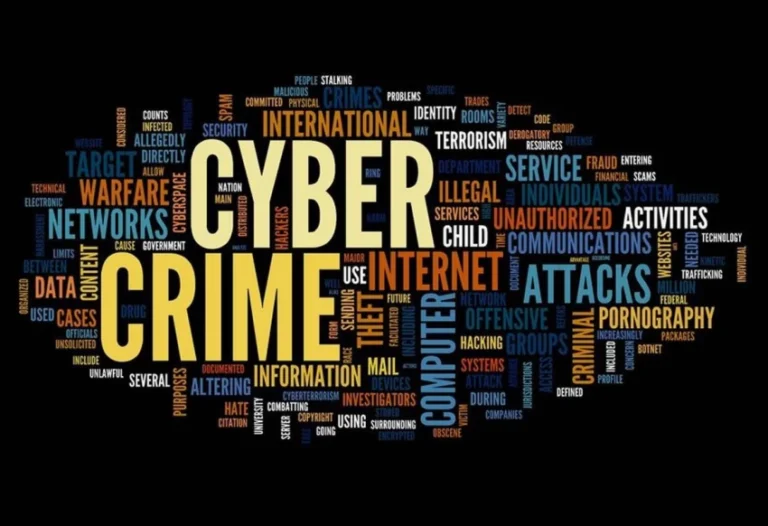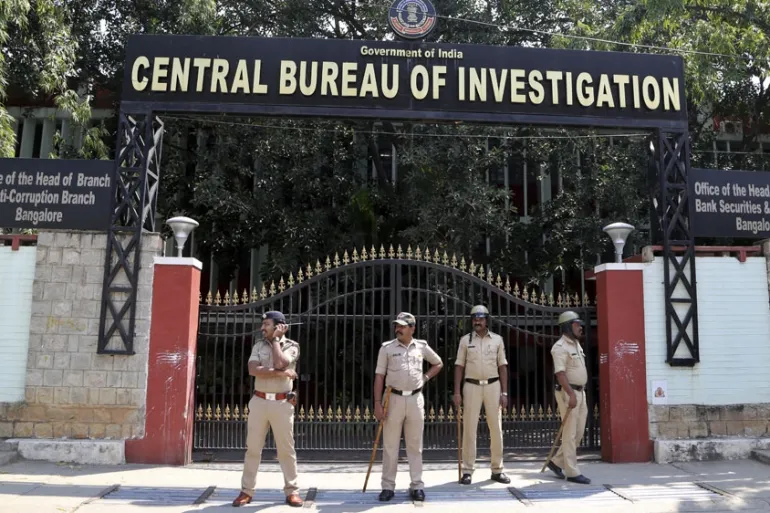Criminal Matter
RAPE

Rape, an egregious violation of one’s autonomy and dignity, continues to cast a dark shadow over societies worldwide. It’s a crime that transcends geographical boundaries, affecting individuals irrespective of age, gender, or social status. Despite efforts to address it, rape remains deeply entrenched, perpetuating fear and trauma within communities.
At its core, rape epitomizes the abuse of power and the erosion of consent. It shatters lives, leaving survivors grappling with physical, emotional, and psychological scars that may endure a lifetime. Moreover, the pervasive culture of victim-blaming often compounds their suffering, hindering both justice and healing.
The fight against rape demands a multifaceted approach. Firstly, fostering a culture of consent is imperative. Education plays a pivotal role here, equipping individuals with the knowledge and skills to recognize and respect boundaries. Comprehensive sex education, from a young age, can dismantle misconceptions and empower individuals to cultivate healthy relationships built on mutual respect.
Secondly, the legal system must prioritize the rights and needs of survivors. This entails robust legislation, swift prosecution, and access to support services, including counseling and medical care. Creating safe spaces where survivors feel validated and supported is crucial in facilitating their recovery and seeking justice.
Lastly, combating rape necessitates challenging entrenched gender norms and dismantling systems of oppression. Addressing toxic masculinity and promoting gender equality are essential steps in dismantling the patriarchal structures that perpetuate violence against women and marginalized genders.
Confronting the reality of rape demands collective action. It requires unwavering commitment from governments, communities, and individuals alike. Let us stand in solidarity with survivors, amplify their voices, and work tirelessly towards a world where the scourge of rape is eradicated, and dignity and autonomy are upheld for all.
MURDER

Murder, the ultimate betrayal of human life, leaves devastation in its wake, irreversibly altering the fabric of families and communities. It is a crime that strikes at the core of our humanity, challenging our collective conscience and underscoring the fragility of existence. Despite its gravity, murder persists as a grim reality, demanding urgent attention and concerted action.
Every murder is a profound tragedy, a stark reminder of the fragility of life and the depths of human depravity. Behind each statistic lies a unique story of loss, of dreams shattered and futures stolen. The ripple effects extend far beyond the immediate victim, casting a long shadow of grief and trauma over loved ones left behind.
In the pursuit of justice, it is essential to recognize the systemic factors that underpin many acts of murder. Socioeconomic disparities, lack of access to mental health resources, and the proliferation of firearms all contribute to the prevalence of violence in our societies. Addressing these root causes requires a multifaceted approach, encompassing both legislative reform and community-based interventions.
Moreover, supporting survivors and bereaved families is paramount in the aftermath of murder. Providing access to counseling, legal assistance, and financial support can help mitigate the long-term effects of trauma and facilitate the healing process.
As a society, we must reaffirm our commitment to upholding the sanctity of life and promoting a culture of non-violence. This entails holding perpetrators accountable, while also addressing the underlying factors that breed violence. By fostering empathy, compassion, and solidarity, we can strive towards a world where murder is an unthinkable relic of the past, and every life is valued and cherished.
GREVIOUS HURT

Grievous hurt, whether inflicted physically or emotionally, inflicts deep wounds that transcend the realm of mere pain. It leaves scars not only on the body but also on the psyche, challenging individuals to navigate a path toward healing and restoration. While the scars may fade with time, the impact lingers, underscoring the importance of compassion and support in the journey toward recovery.
At its core, grievous hurt represents a violation of one’s physical or emotional boundaries, shattering the sense of safety and security that underpins our well-being. Whether it manifests as physical assault, verbal abuse, or psychological trauma, its effects reverberate through every aspect of a person’s life, leaving them grappling with fear, anger, and profound vulnerability.
In the aftermath of grievous hurt, it is essential to prioritize both physical and emotional well-being. Seeking medical attention for physical injuries is crucial, but equally important is tending to the wounds of the soul. This may involve seeking therapy, leaning on the support of loved ones, or engaging in self-care practices that promote healing and resilience.
Moreover, addressing the root causes of grievous hurt is essential in preventing its recurrence. This requires a concerted effort to challenge systems of oppression, dismantle toxic power dynamics, and foster a culture of empathy and respect. By promoting education, awareness, and accountability, we can create communities where grievous hurt has no place to thrive.
As individuals and as a society, we must commit ourselves to supporting survivors of grievous hurt with compassion, understanding, and unwavering solidarity. Through collective action and a commitment to justice, we can create a world where everyone can heal and thrive, free from the specter of violence and harm.
THEFT

Theft, a violation of property rights and personal security, undermines the foundation of trust upon which communities are built. It ranges from petty theft to sophisticated schemes, leaving victims feeling vulnerable and violated. Addressing theft requires a multifaceted approach that combines prevention, intervention, and support for both victims and perpetrators.
At its core, theft represents a breach of trust and respect for one another’s belongings. Whether it’s a stolen purse, a burglarized home, or identity theft, the impact extends far beyond material loss. It erodes the sense of safety and security that is essential for individuals to thrive in their communities.
Preventing theft requires a combination of proactive measures and community engagement. This includes investing in security systems, strengthening law enforcement efforts, and promoting awareness about common theft tactics. Equally important is fostering a culture of vigilance and solidarity, where neighbors look out for one another and collaborate to prevent crime.
Intervention strategies must also address the underlying factors that drive individuals to commit theft. This may involve providing access to education, employment opportunities, and social services that address economic inequality and financial hardship. Rehabilitation programs can help offenders address the root causes of their behavior and reintegrate into society as law-abiding citizens.
Support for victims of theft is essential in helping them recover from the emotional and financial impact of the crime. This may include access to counseling, financial assistance, and legal resources to navigate the aftermath of theft and pursue justice.
Ultimately, tackling theft requires a collective effort from individuals, communities, and policymakers. By promoting trust, security, and accountability, we can create environments where theft is not only deterred but where everyone feels safe, valued, and respected.
ROBBERY AND DACIOTY

Robbery and disparity, twin specters haunting societies, epitomize the stark inequalities that divide our world. Robbery, the brazen theft of property or resources, preys upon the vulnerable, exacerbating the systemic injustices that perpetuate disparity. Addressing this dual challenge demands a holistic approach that targets both the symptoms and root causes of inequality.
Robbery, beyond its immediate impact of material loss, inflicts emotional and psychological scars on victims, fostering a pervasive sense of fear and insecurity. Moreover, it thrives in environments plagued by socio-economic disparity, where marginalized communities are disproportionately affected by crime due to limited access to resources and opportunities.
Confronting robbery necessitates bolstering law enforcement efforts, enhancing security measures, and promoting community engagement to deter criminal activity. Additionally, addressing the underlying drivers of robbery requires tackling systemic inequality and economic injustice. This entails advocating for policies that promote equitable distribution of wealth, access to education, and opportunities for socio-economic advancement.
Disparity, on the other hand, encompasses a broader spectrum of inequities, including but not limited to wealth, education, healthcare, and access to justice. It perpetuates cycles of poverty and marginalization, depriving individuals and communities of the chance to thrive and fulfill their potential.
To combat disparity, systemic change is imperative. This involves challenging entrenched power structures, dismantling barriers to opportunity, and amplifying the voices of marginalized communities. By promoting inclusive policies and fostering a culture of empathy and solidarity, we can create societies where everyone has the chance to flourish, free from the specter of robbery and the shackles of disparity.
In essence, addressing robbery and disparity requires a concerted effort from all sectors of society. By tackling the root causes of inequality and fostering environments of security, justice, and opportunity, we can pave the way towards a future where every individual is valued, respected, and empowered to live a life of dignity and fulfillment.
ACCIDENTAL MATTER

Accidental matter, a concept that challenges conventional understanding, delves into the intricate tapestry of existence where seemingly random occurrences give rise to profound consequences. In the realm of physics, accidental matter refers to particles that emerge from collisions or interactions between fundamental particles, often defying predictability and offering glimpses into the enigmatic nature of reality.
At the heart of accidental matter lies the notion that the universe is teeming with potentiality, where chance encounters and spontaneous events shape the fabric of reality in unforeseen ways. This concept challenges deterministic models of the universe, suggesting that uncertainty and randomness play a fundamental role in shaping the cosmos.
The study of accidental matter offers profound insights into the complexity and richness of the universe. By unraveling the mysteries of particle collisions and quantum interactions, scientists gain a deeper understanding of the underlying principles governing the behavior of matter and energy at the most fundamental level.
Moreover, accidental matter highlights the interconnectedness of all phenomena, illustrating how seemingly isolated events can have far-reaching consequences across space and time. From the formation of stars and galaxies to the evolution of life on Earth, accidental matter underscores the intricate interplay of chance and necessity that drives the unfolding of cosmic history.
In essence, the exploration of accidental matter invites us to embrace the inherent unpredictability of the universe and to marvel at the boundless creativity of the cosmos. By embracing uncertainty and embracing the unknown, we open ourselves to new avenues of discovery and understanding, enriching our perception of the universe and our place within it.
CYBER CRIME

In an increasingly digitized world, the rise of cybercrime poses a significant threat to individuals, businesses, and societies at large. Cybercrime encompasses a broad spectrum of illicit activities, ranging from data breaches and identity theft to online scams and cyberterrorism. As technology advances, so too do the tactics and sophistication of cybercriminals, underscoring the urgent need for robust cybersecurity measures and collective vigilance.
The ubiquity of the internet and the proliferation of digital devices have created unprecedented opportunities for cybercriminals to exploit vulnerabilities and target unsuspecting victims. From phishing emails that deceive users into divulging sensitive information to ransomware attacks that hold businesses hostage, the tactics employed by cybercriminals continue to evolve in response to technological advancements.
Addressing the menace of cybercrime requires a multifaceted approach that encompasses prevention, detection, and response strategies. Investing in cybersecurity infrastructure, including firewalls, encryption protocols, and intrusion detection systems, is essential in fortifying defenses against cyber threats. Equally important is promoting cybersecurity awareness and education among individuals and organizations to empower them to recognize and mitigate potential risks.
Furthermore, fostering international cooperation and collaboration is crucial in combatting cybercrime, as many perpetrators operate across borders with impunity. By sharing information, resources, and best practices, countries can strengthen their collective ability to investigate and prosecute cybercriminals, while also deterring future attacks through coordinated law enforcement efforts.
As we navigate the digital frontier, it is imperative that we remain vigilant and proactive in safeguarding against cyber threats. By embracing a culture of cybersecurity, investing in robust defenses, and fostering collaboration across borders, we can effectively combat cybercrime and ensure a safer and more secure digital environment for all.
CONSUMER

Consumers, the driving force behind economies worldwide, wield immense power in shaping markets and influencing industries. In an era defined by globalization, technological innovation, and ever-expanding choices, empowering consumers to make informed decisions is paramount in fostering fair competition, protecting rights, and promoting sustainable consumption practices.
At the heart of consumer empowerment lies access to information and transparency. With the advent of the internet and social media, consumers have unprecedented access to product reviews, price comparisons, and other forms of consumer feedback, enabling them to make more educated choices. Moreover, regulatory frameworks, such as consumer protection laws and labeling requirements, play a crucial role in ensuring that consumers have access to accurate and reliable information about the products and services they purchase.
Beyond access to information, consumer empowerment also entails safeguarding consumer rights and interests. This includes protections against unfair or deceptive marketing practices, as well as recourse mechanisms for resolving disputes and seeking redress in cases of fraud or malpractice. Empowered consumers are equipped with the tools and resources to advocate for their rights and hold businesses accountable for their actions.
Furthermore, consumer empowerment encompasses broader socio-economic considerations, such as promoting ethical sourcing, environmental sustainability, and social responsibility in the production and distribution of goods and services. By supporting companies that prioritize ethical business practices and sustainable development, consumers can leverage their purchasing power to drive positive change and contribute to a more equitable and environmentally conscious economy.
In essence, consumer empowerment is not merely about making purchasing decisions; it is about exercising agency, promoting accountability, and driving meaningful change in the marketplace and beyond. By empowering consumers with knowledge, rights, and choices, we can create a more dynamic, competitive, and socially responsible economy that serves the interests of all stakeholders.
NDPS Bail & Matters

In India, the Narcotic Drugs and Psychotropic Substances (NDPS) Act, 1985, regulates various aspects concerning narcotics and psychotropic substances. Bail under the NDPS Act is a complex issue due to stringent provisions aimed at curbing drug-related offenses.
Securing bail under the NDPS Act involves several considerations. Firstly, the severity of the offense and the quantity of drugs involved significantly influence the bail decision. Courts typically adopt a cautious approach, especially in cases involving large quantities or repeat offenders, often denying bail to prevent tampering with evidence or influencing witnesses.
Moreover, the presumption of guilt under certain sections of the NDPS Act poses additional challenges for obtaining bail. Section 37 of the Act shifts the burden of proof to the accused, making it incumbent upon them to prove their innocence. This reversal of burden makes securing bail even more daunting.
However, recent judicial trends reflect a more nuanced approach towards NDPS bail matters. Courts have emphasized the importance of considering individual circumstances, such as the nature of the offense, the accused’s role, and their criminal record, while adjudicating bail applications. Additionally, courts have recognized the need to balance the interests of justice with the rights of the accused, ensuring that bail provisions are not unduly restrictive.
Furthermore, the Supreme Court has intervened to clarify the criteria for granting bail under the NDPS Act, emphasizing principles of proportionality and fairness. This has provided some relief to individuals facing incarceration under stringent drug laws.
In conclusion, while obtaining bail under the NDPS Act remains challenging, recent judicial developments signal a more balanced approach, offering hope for fair treatment and justice for accused individuals caught in the web of drug-related offenses.
Central Bureau of Investigation ( CBI)

The Central Bureau of Investigation (CBI) stands as the preeminent investigative agency in India, entrusted with the responsibility of probing high-profile cases involving corruption, economic crimes, and other serious offenses. Established in 1963, the CBI operates under the jurisdiction of the Ministry of Personnel, Public Grievances, and Pensions, serving as a beacon of integrity and impartiality in the pursuit of justice.
Endowed with a wide mandate, the CBI investigates a diverse range of cases, including those related to government officials, public servants, financial irregularities, and major criminal conspiracies. Its authority extends across state boundaries, allowing it to transcend regional limitations and conduct thorough, impartial investigations across the nation.
The CBI operates on the principles of autonomy, professionalism, and transparency, striving to maintain the highest standards of probity and impartiality in its proceedings. Its investigators undergo rigorous training to equip themselves with the skills and knowledge necessary to tackle complex cases effectively.
One of the CBI’s distinguishing features is its capacity to handle cases that require specialized expertise and resources, including forensic analysis, digital forensics, and coordination with international agencies. This enables the agency to navigate the intricacies of modern crime and bring perpetrators to justice, regardless of their influence or stature.
Despite its significant accomplishments, the CBI faces challenges such as bureaucratic hurdles, political interference, and resource constraints. Nonetheless, its unwavering commitment to upholding the rule of law and combating corruption solidifies its position as a cornerstone of India’s law enforcement landscape.
